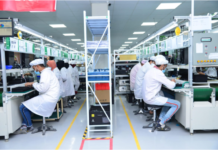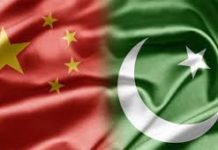By Muhammad Luqman
The World Bank has approved an additional $130 million to continue supporting farmers in Pakistan’s Punjab province to use water more efficiently. Adopting and installing drip and sprinkler systems will significantly reduce widespread wasteful irrigation techniques.
To get more out of a drop of water in agriculture production, the project aims to raise crop yields, encourage farmers to shift to high-value crops such as fruits and vegetables, and cut the amount of money paid by farmers on fertilizer, pesticides or other costs.
“A vibrant farm sector can help end poverty in Pakistan. Our support to the Government of Punjab will spur new opportunities in climate smart agriculture that bring more money for farmers,” says Illango Patchamuthu, World Bank Country Director in Pakistan.
The $130 million represents additional financing for the Punjab Irrigated Agriculture Productivity Improvement Program Phase-I, which had an original investment of $250 million. The project has contributed to increased agricultural production, employment and pay, higher living standards and improvements in the environment.
The project supports an initiative by the Government of Punjab called High-Efficiency Irrigation Systems that more than doubles the efficiency of water use. It is also promoting private sector participation through the manufacturing and supply of materials.
“The High-Efficiency Irrigation Systems has been critical for making farmers more productive and for creating jobs in installing and maintaining the systems”, said Masood Ahmad, the World Bank’s Lead Water Specialist. “A big impact of these technologies is how it gives jobs to women farmers, as irrigation becomes a daytime-only activity that is much easier to manage.”
Under the project, drip irrigation systems have already been installed on about 26,000 acres, and 5,000 laser leveling units have been provided. The additional financing will ensure completion of 120,000 acres with ponds in saline areas and for rainwater harvesting, and filtration systems for drinking water where possible.
According to World Bank media release, the loan is financed by the International Bank for Reconstruction and Development, part of the World Bank Group that lends to credit-worthy low and middle income countries. It is a fixed-spread loan with a maturity of 21 years, including a grace period of 6 year















